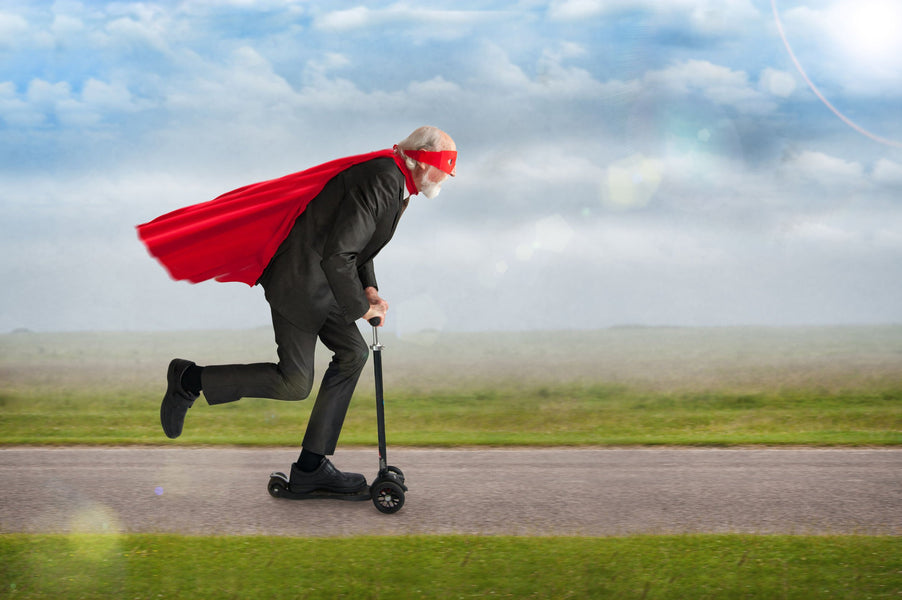
It's not often that a researcher can stand up in front of an audience at a Harvard Medical School conference packed with psychologists and physicians and ask, “Didn’t anyone tell you there’ll be a movie where Jennifer Aniston will be playing me?” That researcher is 69 year old Ellen Langer and her work on mindset and aging has captured the imagination of Hollywood with DreamWorks Studios reportedly commissioning the script for the movie in which Aniston will star.
In 1981, Langer became the first woman ever to be tenured in psychology at Harvard, but it is her famous Counter Clockwise experiment that has put her life in Hollywood's spotlight. In 1979 Langer piled two groups of men in their 70s and 80s into vans and drove them to an old monastery in New Hampshire. When the men arrived, they discovered they had time traveled twenty years back into the past. For the next week their environment was a complete replication of what life was like in the 1950s. They were surrounded by old issues of Life magazine and the Saturday Evening Post, a black-and-white television, and a vintage radio broadcasting ‘live’ from 1959.
Langer wanted to test what effect turning back the clock psychologically would have on their physiological state. She wanted to see if by immersing them in a time capsule she could biologically make them younger. One group of men was asked to act as though they were living in the 1950s and were instructed to only talk as though 1959 were the present day. As they watched old movies such as The Diary of Anne Frank and Ben Hurr, discussed pressing issues such as communism and the need for bomb shelters, and listened to Nat ‘King’ Cole on the radio, they were instructed to ‘let themselves be who they were 20 years earlier’. The second group of men was the control group and while they also spent a week in the 1950s environment, they were told only to reminisce about that era.
In her book Counter Clockwise Langer reported a remarkable transformations in the men. “At the end, one of them had begun to walk without using his cane,” she wrote. Both groups of men recorded improvements in measures of their physical strength, manual dexterity, gait, posture, perception, memory, cognition, taste sensitivity, hearing and vision. The group for whom Langer had turned back the clock, who were experiencing the 1959 surrounding as if it were the present, showed even greater improvements on most of the measures. When they had independent people look at before and after photos of the men who had been living as though the past was the present, they rated their appearances as being more than two years younger at the end of the study then they were at the start.
Captivating as this particular Langer experiment is, it was never sent to, nor published in peer reviewed scientific journals. There were only nine men in the experimental condition of the study, and eight in the control group, and it lasted only five days. There were just too many variables and possible explanations for the men’s transformation and despite being a professor at Harvard medical school, Langer’s scientific credibility is regularly called into question by skeptics. She's published a number of other studies testing the power of mind over matter, including one where she found that telling hotel maids that their work was good exercise and satisfied the surgeon general’s recommendations for an active lifestyle led to a decrease in those maids’ weight, blood pressure, and body fat four weeks later, even though they reported no change in activity or diet.
Nevertheless, the Counter Clockwise experiment is the one that has generated the significant buzz. Langer has been the subject of profiles in the Boston Globe and the New York Times. A replication of the study by the BBC using ageing celebrities as the test subjects made for compelling television viewing, especially with memory, mood, flexibility, stamina and even eye sight improvements being recorded in almost all of them. As Langer writes in her book, “These improvements were the result of one week spent with a group of strangers. Imagine the possibilities if our culture afforded us a different set of mindsets than we have about old age.”





 My Year of Living Mindfully (DVD)
My Year of Living Mindfully (DVD) The Connection (DOWNLOAD-TO-OWN)
The Connection (DOWNLOAD-TO-OWN) My Year Of Living Mindfully - Book
My Year Of Living Mindfully - Book




